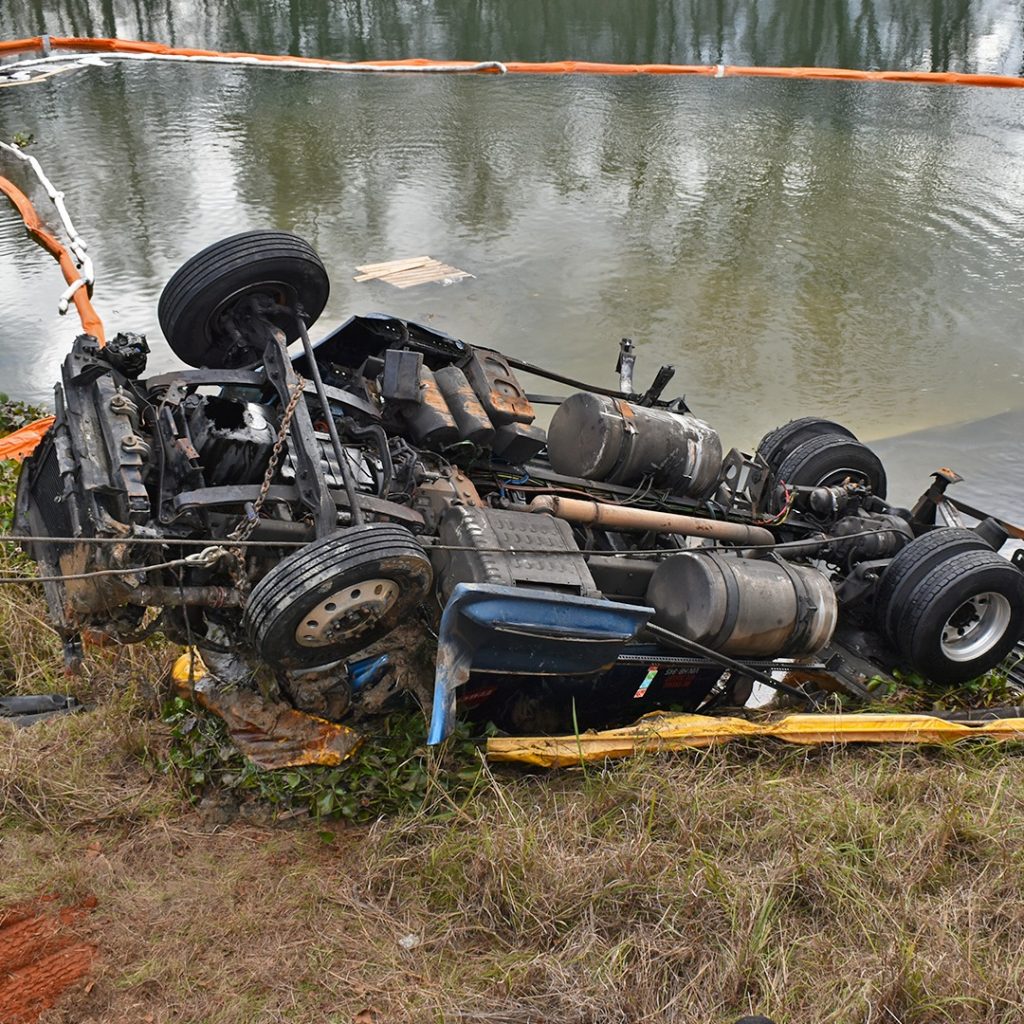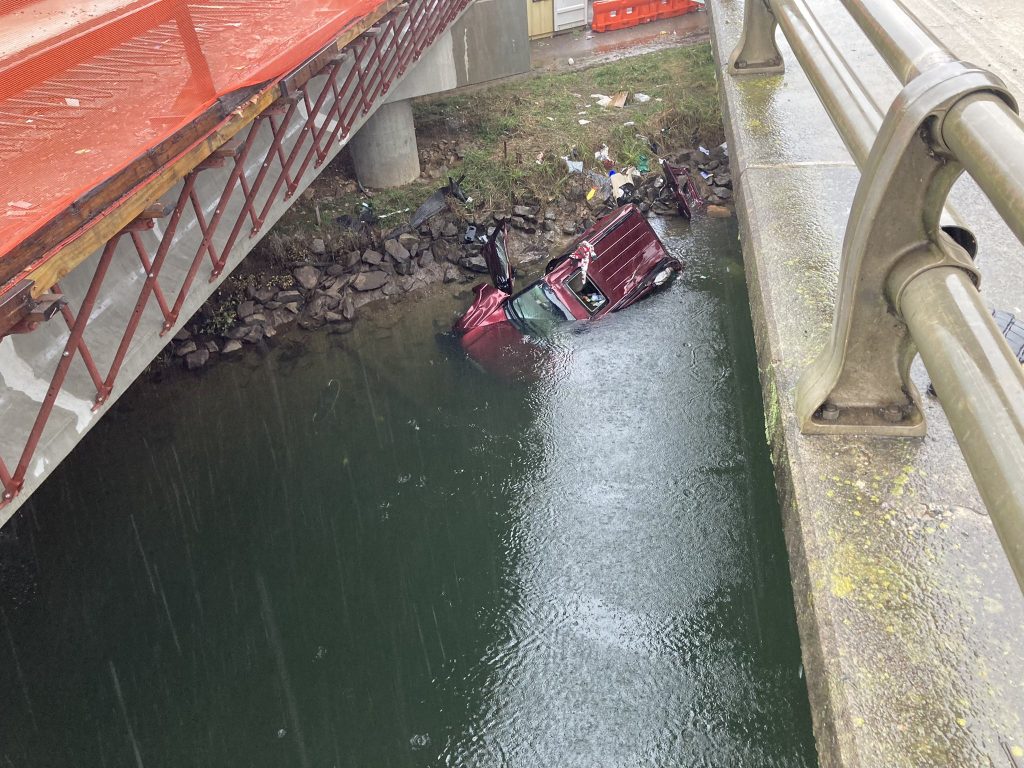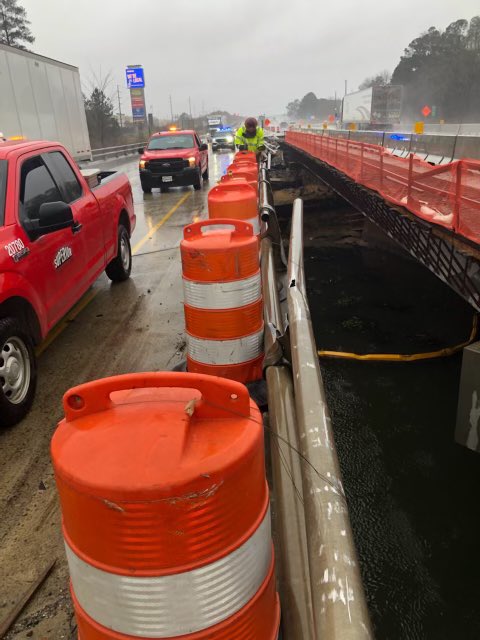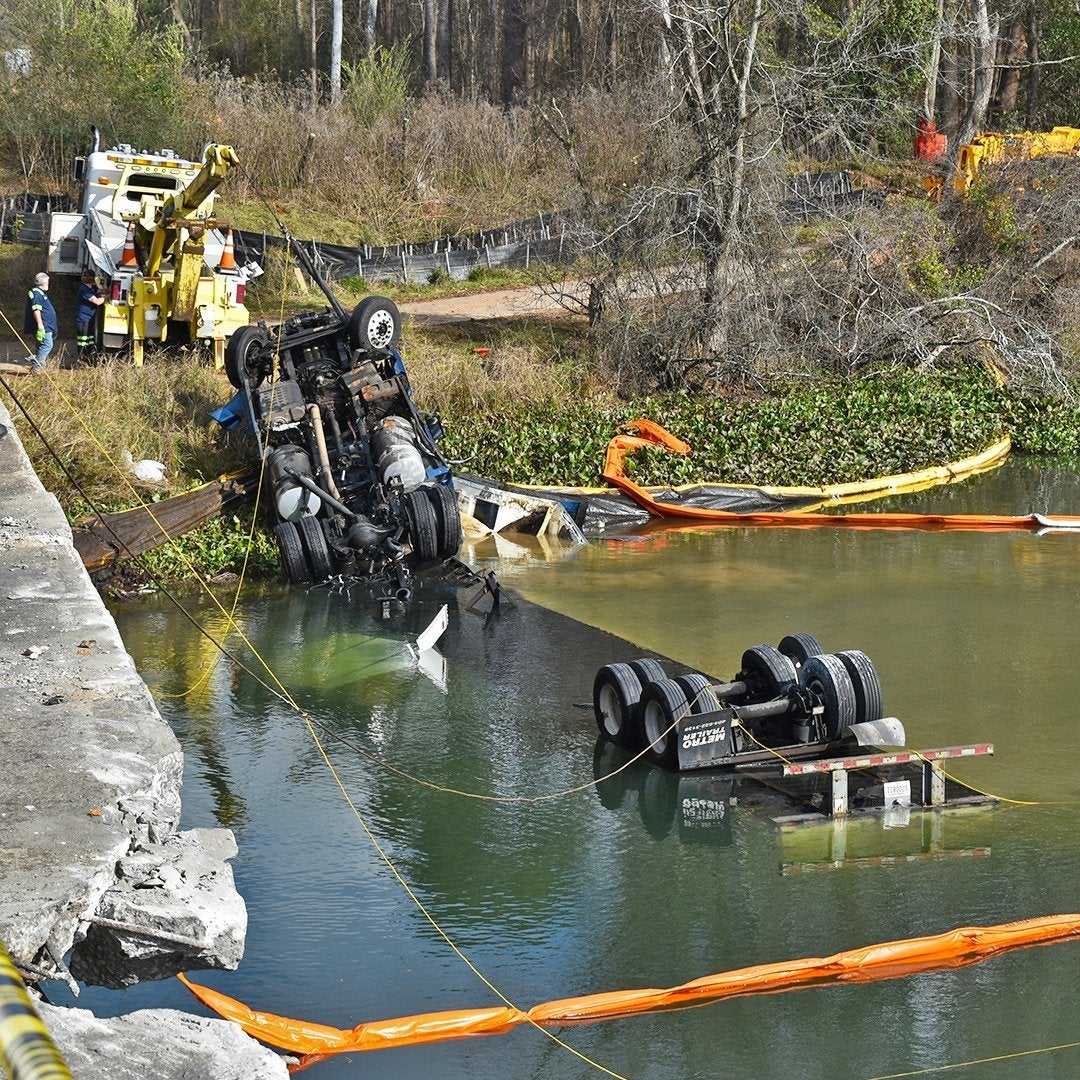Over the past month, two vehicles traveling on Interstate 20 in the construction zones have been involved in accidents that sent the vehicles into the Augusta Canal.
The first accident occurred on Dec. 27, 2021 when the driver of a tractor trailer hauling a load of Kaolin lost control and crashed through the guardrail. The semi came to rest upside down in the 15-foot-deep waterway.

According to Kyle Collins of the Georgia Department of Transportation, the guardrail was to be immediately replaced, but inclement weather stalled the replacement. As a temporary measure, orange warning barrels were placed along the broken rail area.
The second accident occurred Jan. 16 when a driver lost control at the area of the broken rail, plowing through the barrels and crashing into the water below.
[adrotate banner=”55″]
Neither of the drivers was injured in the accidents. Collins said speed appears to have been a factor in both accidents.
“We warn people all of the time, especially this time of year, when we have wintery weather, that they need to slow down. Even though we have signs up warning of reduced speed, people still speed through those work areas, which constantly puts our work crews at risk,” Collins said.

According to Dayton Sherrouse, executive director of the Augusta Canal National Heritage Area, many years ago, it was common for people to steal vehicles and abandon them in the canal. However, now that much of the canal is closed to vehicular traffic, abandoned vehicles pretty much stopped showing up submerged in the canal.
Sherrouse says these days, vehicles crashing through the guardrail at I-20 has become almost commonplace.
“They are usually semis. I remember one recently that was carrying a load of particle board which came loose, and we liked to have never got all that wood out of the water; all that particle board just drifted downstream,” Sherrouse said. “We had a tractor trailer loaded down with seafood go over the rail, and I just had to look at the bright side. At least, the fish got fed.”
However, vehicles falling into the canal is serious business for the environment. Most tractor trailers carry between 120 and 150 gallons of diesel fuel. According to Sherrouse, every time a vehicle goes in the waterway, whether it is a semi or a passenger vehicle, city water engineers have to shut off the pumps that lead from the canal to the Highland Avenue Water Treatment Center and use auxiliary pumps that are tied directly to the Savannah River.
Most of Augusta gets its drinking water from the Augusta Canal.

“We have to activate the emergency diesel pumps to let small amounts of fuel dissipate, and if it is a bigger spill, the main pumps have to stay down while they bring in the booms, where they can contain and remove it,” he said.
Savannah Riverkeeper Tonya Bonitatibus says that it is a great backup for the city to have those emergency pumps.
“The city has only had them for about five years, so it’s a relatively new system, but it’s great to have. I’m also glad they are widening I-20 at the bridge. Hopefully, that will reduce the number of accidents,” Bonitatibus said.
[adrotate banner=”15″]
The last semi that found its way into the canal was loaded with Kaolin, a type of clay that is not harmful to the water. However, Bonitatibus says that trucks hauling any kind of a caustic substance that go over the bridge could have disastrous consequences.
“Gasoline would be a big problem, but since it floats, it can be cleaned up relatively quickly. Other things such as acids will seep into the soil that lines the canal bottom and that would be really, really bad,” Bonitatibus said.
According to Collins, motorists should take particular care in the coming weeks as work is set to begin installing new Savannah River bridge beams, requiring westbound single-lane closures. That work is set to continue through February, depending on weather conditions.
“Crews will also install a westbound interstate lane closure Monday, Jan. 24 to shift the concrete barrier wall between the Savannah River and the Augusta Canal. Closure dates may change due to weather conditions or other factors,” Collins said. “We really encourage people to slow down in those areas and stay off their cell phones.”
Scott Hudson is the Senior Reporter for The Augusta Press. Reach him at scott@theaugustapress.com











